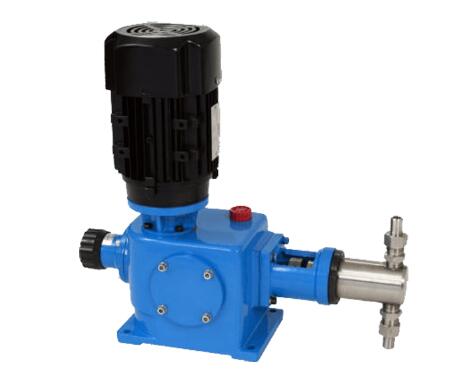Post time: Mar-28-2024
How Accurate Is The Flow Rate of a Metering Pump?
Metering pumps are renowned for their ability to deliver precise and consistent fluid dosing in a wide range of industrial applications. However, achieving accurate flow rates is crucial for ensuring the reliability and efficiency of processes where even minor deviations can have significant consequences. In this article, we delve into the factors that influence the accuracy of metering pump flow rates and explore the measures taken to maintain precision in fluid dosing.
Design and Engineering
The accuracy of a metering pump's flow rate is heavily influenced by its design and engineering. Manufacturers employ advanced technologies and precise machining processes to ensure tight tolerances and minimal internal leakage within the pump mechanism. Components such as diaphragms, pistons, and gears are meticulously crafted to minimize variations in fluid displacement, thereby enhancing flow rate accuracy. Additionally, the selection of materials for pump construction is critical to withstand the rigors of industrial environments while maintaining consistent performance.
Control Mechanisms
Metering pumps are equipped with sophisticated control mechanisms that enable operators to adjust flow rates with precision. These control systems may utilize electronic controllers, variable-speed drives, or stroke adjustment mechanisms to regulate pump operation. By accurately controlling factors such as stroke length, stroke frequency, and discharge pressure, operators can fine-tune flow rates to meet specific process requirements. Furthermore, feedback mechanisms such as flow sensors and pressure transducers provide real-time monitoring and adjustment capabilities, ensuring continuous accuracy in fluid dosing.
Calibration and Testing
Ensuring the accuracy of metering pump flow rates requires rigorous calibration and testing procedures. Manufacturers subject pumps to comprehensive performance testing under various operating conditions to verify flow rate accuracy and consistency. Calibration standards and procedures are established to validate pump performance against specified tolerances and industry standards. Additionally, routine maintenance and recalibration schedules are implemented to maintain accuracy over the pump's operational lifespan. By adhering to strict quality control protocols, manufacturers uphold the reliability and precision of metering pump flow rates.
Fluid Properties and Conditions
The characteristics of the fluid being pumped and the operating conditions can impact the accuracy of flow rates. Viscosity, temperature, and chemical composition can affect fluid behavior and pump performance, influencing flow rate accuracy. Metering pumps are designed to accommodate a wide range of fluid properties, but variations in viscosity or temperature may require adjustments to maintain accuracy. Additionally, factors such as suction head, discharge pressure, and system backpressure can influence pump efficiency and flow rate stability. Operators must consider these factors when configuring and operating metering pumps to ensure optimal performance.
Conclusion
In conclusion, the accuracy of metering pump flow rates is a critical factor in achieving precise and reliable fluid dosing in industrial applications. Through meticulous design and engineering, sophisticated control mechanisms, rigorous calibration and testing, and consideration of fluid properties and operating conditions, manufacturers strive to maintain accuracy and consistency in pump performance. By understanding the factors that influence flow rate accuracy and implementing measures to address them, operators can rely on metering pumps to deliver precise fluid dosing for a wide range of industrial processes.
If you need high-quality metering pumps or expert guidance on fluid dosing solutions, don't hesitate to contact us. As a leading supplier of industrial pumps and equipment, we're committed to providing reliable products and tailored solutions to meet your specific needs


















